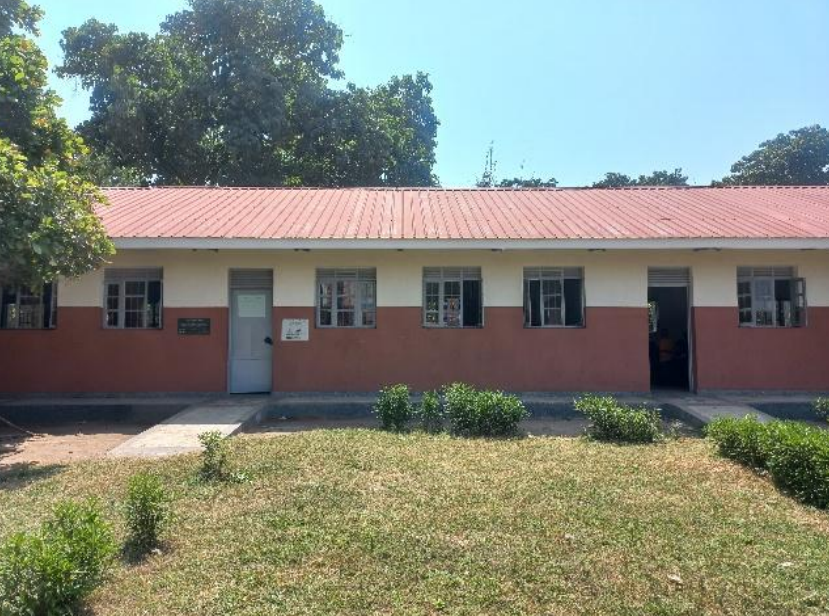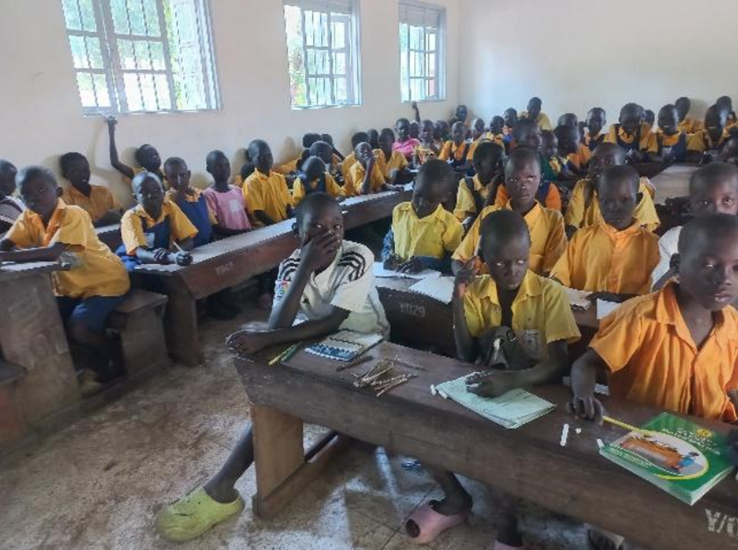In 2018, Solwers Plc and the Finnish Ministry of Foreign Affairs provided significant support to Yenga Primary School in Bidibidi, Northern Uganda. This support enabled the construction of a three-classroom school building, which has provided a learning space for hundreds of children. Now, seven years later, the building has been renovated. The school provides education for over 1,200 pupils but the financial situation is challenging.


The provided support enabled the construction of a three-classroom school building. Bidibidi is the world’s second-largest refugee settlement, by Solwers and the school serves both the refugee and local communities. Most of the school’s students are children who fled from South Sudan due to ongoing violence.
The building was furnished with 18 desks and served as the school’s main learning space for a long time. The school building provides desk space for a total of 162 young students. Classes are held in multiple shifts, so the number of students is significantly higher than the number of desks. In March 2025, the school building was renovated. Currently, the school has a total of six buildings and fifteen classrooms, eight of which are safely in use for teaching. The remaining seven are awaiting repairs.
The school has a total of 1,259 students, of which 927 are South Sudanese refugees and 332 are Ugandans. The teaching staff consists of 15 teachers: nine Ugandan male teachers, one male teacher with a refugee background, and five Ugandan female teachers. The teacher-student ratio is currently weak, with an average of 84 students per teacher. The school has 240 desks, meaning that an average of five students share one desk. The students are aged 5-16, and education is provided from the first to the seventh grade. Subjects taught at the school include literature, English, mathematics, religion, and social studies. Additionally, the curriculum includes music lessons, theater expression, and physical education.
The West Nile region, where Bidibidi is located, is one of the poorest areas in Uganda. Refugees in Bidibidi are in a very vulnerable position, and living conditions are far from ideal. Many homes still have plastic sheet roofs, and some schools are temporary tent schools. Over two-thirds of Bidibidi’s residents are under 18 years old. Given the large number of children and youth and the uncertainty of returning to their home country, it is crucial to provide educational opportunities in the refugee settlement.
In refugee settlements, education plays an important role in protecting children and promoting their well-being. Schools also bring much-needed routine to refugee families who have left everything behind to escape war and unrest. Investing in quality education can prevent youth radicalization, ensure the necessary skills for independent livelihoods, and, in the long term, support the economic growth of countries.




